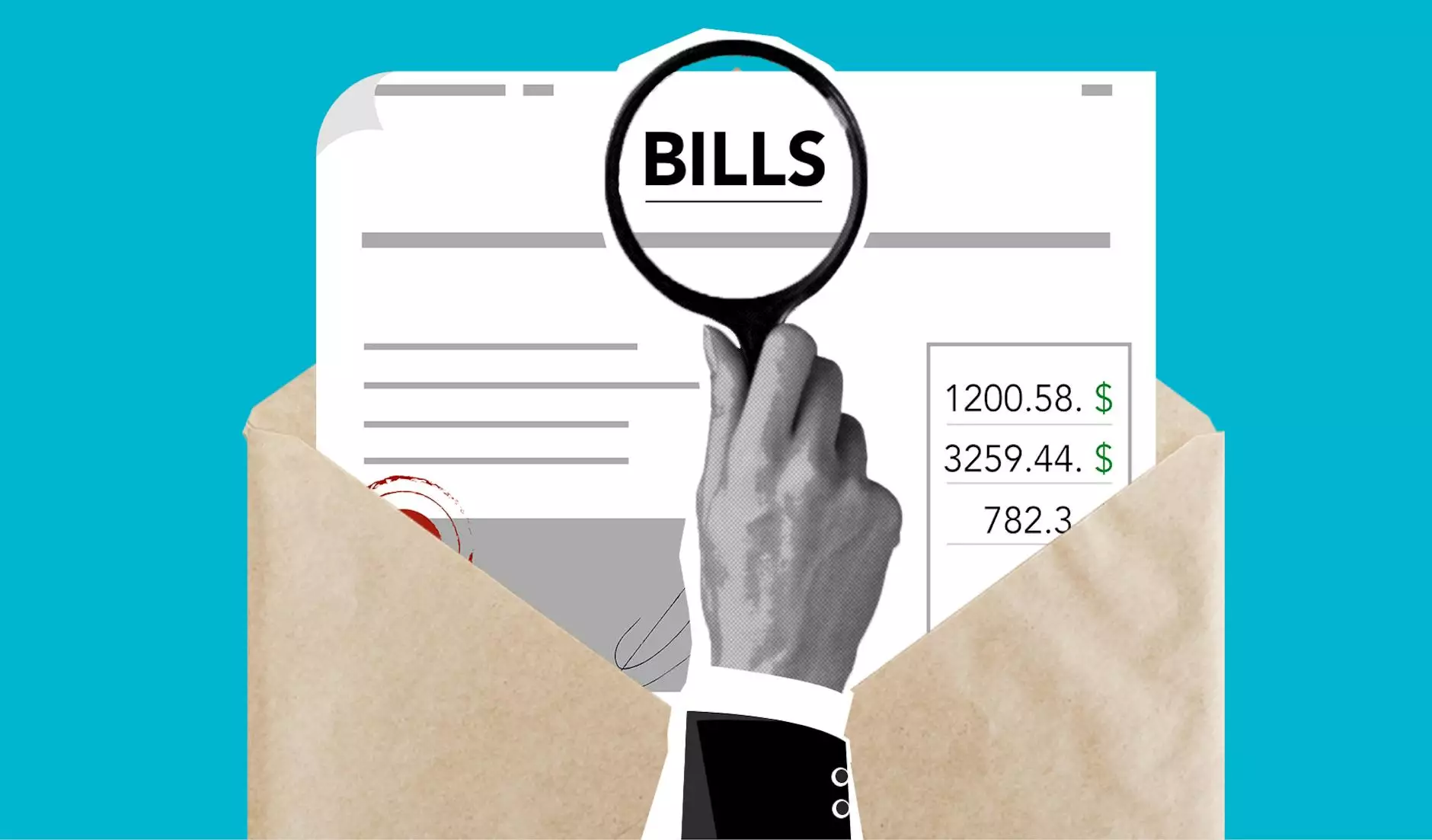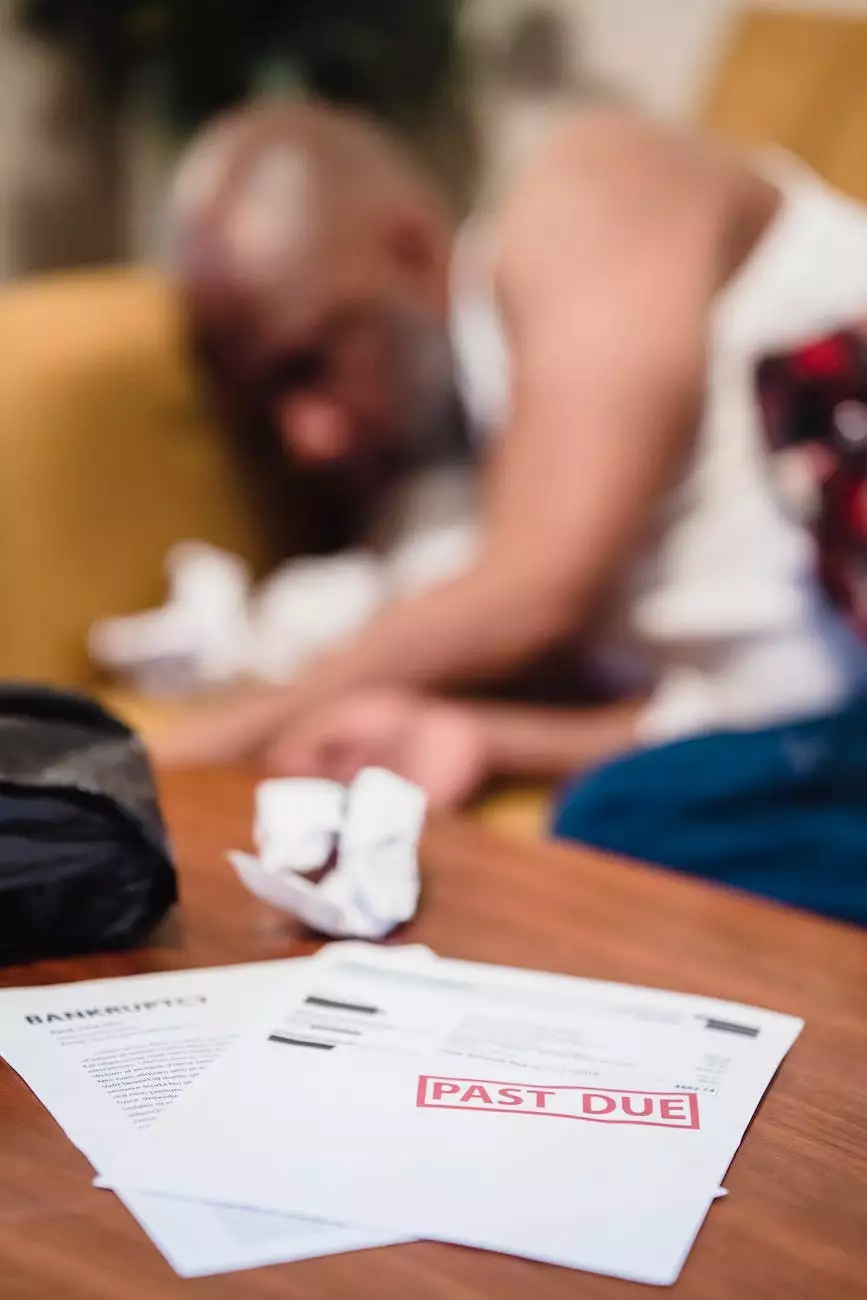Can Creditors & Debt Collectors Freeze My Bank Account?
Financials & Reports
Welcome to Social Service of America, your trusted source for information and resources on community and society in the field of philanthropy.
Understanding Creditor Rights and Bank Account Freezing
If you are dealing with financial difficulties and owe money to creditors or debt collectors, you may have concerns about whether they can freeze your bank account. This article aims to provide you with a comprehensive understanding of the rights and regulations surrounding this issue, empowering you to protect your assets and navigate through these challenging situations.
Know Your Rights: Legal Protections for Bank Account Holders
When it comes to creditors and debt collectors freezing your bank account, it's crucial to be aware of your rights. As a bank account holder, you have legal protections in place that limit the ability of creditors to freeze your assets without due process. These protections help ensure fairness and balance in the debt collection process.
Understanding State Laws and Exemptions
In the United States, each state has its own laws and exemptions that determine the extent to which creditors can freeze bank accounts. These laws often establish thresholds that protect a certain amount of funds, typically for essential living expenses such as housing, food, and healthcare. Familiarize yourself with the specific laws and exemptions in your state to understand the level of protection afforded to you.
Knowing Your Federal Rights: The Consumer Credit Protection Act
In addition to state laws, federal regulations under the Consumer Credit Protection Act (CCPA) provide further safeguards for individuals facing debt collection actions. The CCPA includes provisions such as limiting the percentage of your wages that can be garnished and protecting certain federal benefits, like Social Security and veterans' benefits, from being frozen by creditors. Understanding your rights under the CCPA is essential in protecting your financial well-being.
How Creditors Can Attempt to Freeze Your Bank Account
Creditors and debt collectors do have legal avenues to pursue freezing your bank account. Understanding their methods can help you prepare and take appropriate action to protect your funds.
Obtaining a Judgment and Writ of Execution
To freeze your bank account, creditors typically need to first obtain a judgment against you in court. This legal ruling confirms the amount you owe and allows them to pursue collection actions. Following a judgment, the creditor can obtain a writ of execution, which authorizes them to freeze your bank account and collect the owed funds.
Enlisting the Assistance of Debt Collection Agencies
Creditors may engage third-party debt collection agencies to assist in the collection process. These agencies have the authority to contact you, negotiate repayment plans, and potentially pursue legal actions, including freezing your bank account, if deemed necessary.
Steps to Protect Your Bank Account and Assets
While the prospect of a creditor freezing your bank account can be daunting, there are steps you can take to safeguard your funds.
Understanding and Exercising Exemptions
Familiarize yourself with the exemptions provided by your state laws and the CCPA, and ensure that you take full advantage of these protections. By understanding what funds are exempt from collection actions, you can better preserve your assets.
Open a Separate Bank Account for Exempt Funds
Consider opening a separate bank account solely dedicated to exempt funds. This account should only contain funds that are protected under state and federal exemptions, making it less susceptible to being frozen by creditors.
Communicate and Negotiate with Creditors
Open lines of communication with your creditors and debt collectors. Engage in honest and transparent discussions about your financial situation and explore potential repayment options. Often, creditors are willing to negotiate and work with you to establish manageable payment plans that may prevent the need for account freezing.
Implement Financial Management Strategies
To avoid creditors freezing your bank account, it's crucial to implement sound financial management strategies. Maintain accurate records of your income, expenses, and debts. Establish an emergency fund to handle unforeseen expenses. By staying organized and financially responsible, you can minimize the risk of account freezing and protect your assets.
Navigating Through Challenging Situations
Dealing with creditor actions and the potential freezing of your bank account can be highly stressful and challenging. However, remember that you are not alone. Seek guidance and support from reputable financial advisors, credit counseling services, or legal professionals who specialize in debt collection matters. Their expertise can help you navigate through the complexities of this process and work towards a resolution.
Building Financial Resilience
Beyond immediate challenges, focus on building long-term financial resilience. Educate yourself about responsible financial practices, saving strategies, and debt management. By enhancing your financial literacy, you can reduce the risk of encountering similar situations in the future and maintain control over your assets.
Conclusion
Understanding your rights as a bank account holder and the actions creditors can take to freeze your bank account is essential in safeguarding your financial well-being. By familiarizing yourself with state laws, federal protections, and implementing sound financial management strategies, you can protect your assets and navigate through challenging situations. Remember, seeking professional guidance and support can provide invaluable assistance as you work towards resolving your debt and building a brighter financial future.
Thank you for choosing Social Service of America as your go-to resource for community and philanthropy-related information. We are committed to providing you with accurate, comprehensive, and valuable content to empower you on your journey to social impact and financial stability.









